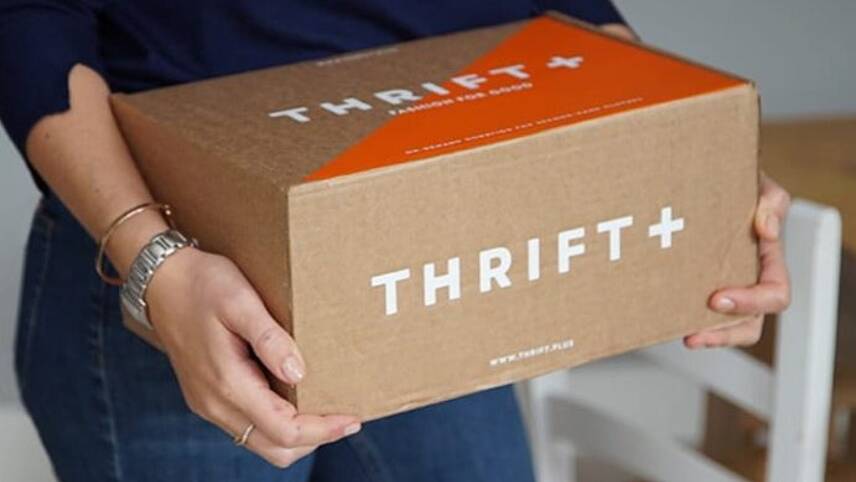Register for free and continue reading
Join our growing army of changemakers and get unlimited access to our premium content

Startup Thrift+ has been growing rapidly since it was founded in 2016. Image: Thrift+
Run in partnership with “on-demand” donation platform Thrift+, the service will enable shoppers to order a donation bag online. When the bag arrives at their homes, it will come with instructions telling recipients to pack their unwanted items and to either book a free collection or drop the bag off at a local collection point.
The bags are then sent to Thrift+, which will list the contents for sale through its online platform. Once the item sells, the customer will receive one-third of the sale proceeds as Farfetch store credit. The remaining proceeds will be split equally between a charitable donation and covering Thrift+’s costs.
Farfetch currently offers products and services to customers in 190 countries, but the Thrift+ service will initially be exclusive to the UK.
“We know our consumers would like an easy way to clear their wardrobes of unused items, and at the same time, they would like to feel positive about it,” Farfetch’s global director of sustainable business Tom Berry said.
“Thrift+ x Farfetch links our customer base with an innovative service that improves the donation experience and has a positive impact by giving good quality clothes another useful life and supporting multiple charities.”
‘Positively Circular’
Farfetch has been serious about the circular economy since its foundation and operates exclusively in the luxury fashion space, where emerging business models linked to the circular economy – including rental, repair and resale – are more established than they are for in the high-street and fast-fashion sector.
One of the four core pillars of the firm’s new sustainability strategy, ‘Positively Farfetch’, is becoming ‘Positively Circular’ – designing waste out of fashion at every stage of the value chain.
Berry previously told edie that the luxury fashion sub-sector is already one step ahead in this process, given that luxury products are designed to be high-quality, long-lasting, and, more often than not, “timeless”.
But in order to close the loop on fashion further, Farfetch recently launched its flagship resale platform called Second Life. Under Second Life, consumers can access a digital platform that enables them to sell their designer handbags back to Farfetch in exchange for store credit. The bags will then be repaired and resold.
The business has also trialled repair in partnership with UK-based startup The Restory and, through its membership to the Ellen MacArthur Foundation’s ‘Make Fashion Circular initiative, is set to launch more closed-loop initiatives in the coming months and years.
Buyback boon
The news of Farfetch and Thrift+’s partnership comes shortly after Burberry signed a partnership to sell its second-hand products through consignment marketplace The RealReal in the US.
Similarly, John Lewis Partnership has this week launched its first pilot ‘buy-back’ scheme for fashion.
For a six-week period, customers will be able to visit the John Lewis Oxford store to drop off used menswear and womenswear from all brands stocked by the retailer. They’ll receive a £3 voucher for each item dropped off, up to a maximum of three items.
John Lewis Partnership estimates that there are around 20,000 people signed up to its loyalty scheme in Oxford, meaning the scheme should attract a wide audience.
“Our approach has always been to make high-quality garments which last, but inevitably there comes a time when they are no longer worn,” John Lewis Partnership’s head of sustainability Stephen Cawley said.
“Our customers are becoming increasingly aware of their actions on the environment, so we want to make it easy for them to ensure the products they buy from us have a long life after they no longer have use for them.”
Sarah George


Please login or Register to leave a comment.